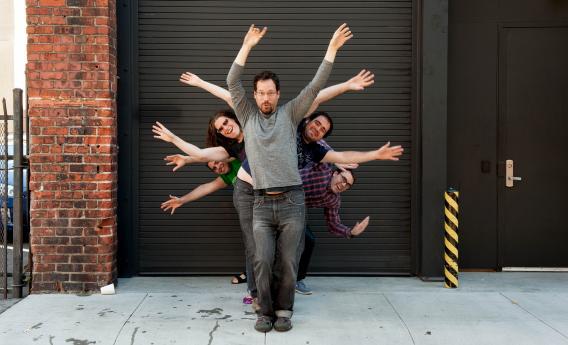The Wall Street Journal has a story today about the ever-wackier names that startups are concocting, from Kaggle to Mibblio to Zaarly. As the Journal points out, the phenomenon isn’t new—Google and Yahoo are classic examples—but it’s reaching new heights as founders try to steer around the 252 million domain names already registered across the Internet. Kaggle founder Anthony Goldbloom took a scientific approach, writing a computer program to come up with all the pronounceable letter combinations under three syllables whose dot-com addresses hadn’t already been claimed. He’s now the proud owner of www.kaggle.com, though he laments that people regularly mispronounce his company’s name.
But not every company is willing to sacrifice a sensical name in pursuit of a straightforward URL. Last week I wrote about Prismatic, a machine-learning startup that has built the world’s smartest news reader. As powerful as its technology is, the company still has a few obstacles to clear before it’s ready for prime time, not least of which is its awkward domain name: www.getprismatic.com. Several times I have attempted to reach the site only to find myself at www.prismatic.com, which is in fact the homepage of a family-owned sign company, Prismatic Signs.
So why can’t getprismatic.com get prismatic.com? Because Tim Howard, who has owned Prismatic Signs since he started it in 1991, won’t sell. “I’ve had several people approach me about buying the website over the years, and I’ve always said no,” Howard told me in a phone interview. “We got this website way back in 1996, and we were one of the first sign companies in the United States to have a website. We’re well-known with our customer base and we get a fair amount of business through our email.” Selling the domain name would require the company’s employees to change those email addresses as well. Howard didn’t rule out ever selling, but he said the offer “would have to really be something to sway me.”
Prismatic co-founder Bradford Cross told me he respects Howard’s position. He would still love to have prismatic.com, but he said acquiring the domain hasn’t been his top priority so far. In the meantime, he notes, people can still get to the site easily enough by bookmarking it, or through a quick Google search. That might be a little inconvenient, but is it really worse than having a name that no one can pronounce?
Besides, as the founder of a name-consulting company—yes, such things exist—told the Journal, those quirky URL-friendly names may look as dated 20 years from now as company names like 1-800-Flowers do today. Although, in 1-800-Flowers’ defense, its ’80s-vintage name choice did turn out to serve it well enough when the time came to move online: www.1800flowers.com was wide open.
